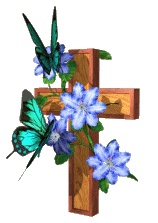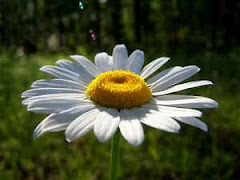Some Background
Freemasonry is veiled in assorted levels of secrecy, legend, and misunderstanding. Throughout the decades, this "social" organization has been referred to as a Christian brotherhood. Others consider it a fraternity of the occult. Freemasonry is often the target of conspiracy theorists, who allege that Masons are responsible for orchestrating entire political, financial and cultural movements throughout the world. For purposes of this website, we will limit our discussion of history, lore and legend, and focus on the basic "doctrinal" positions of today's Freemasonry - although the "basics" can even be hidden or misunderstood in various parts of the Order.
Some Basics
Freemasonry is referred to by numerous names. Some of these names include: the Brotherhood, the Craft, the Order, and the Lodge. Blue Lodge (more formally known as Symbolic Lodge) consists of three degrees: Entered Apprentice, Fellow Craft, and Master Mason. The three degrees are a progression with the goal being to become a Master Mason. Master Mason is the highest degree attainable in Symbolic Lodge. There are an additional 29 degrees in the Scottish Rite, and an additional 9 degrees in the York Rite. The 33rd degree is an honorary degree which cannot be sought. One has to be recommended for it. Various signs, tokens, and secrets are made known to the Mason as he graduates to higher levels or degrees. One of the most known symbols for Masonry is the letter "G." Depending on whose interpretation you believe, this symbol can represent geometry, God, or gnosis.
Christians traditionally interpret the symbol as God, whereas others within the Order define it as knowledge or gnosis. There is a great deal of secrecy in Freemasonry. From the beginning, the Entered Apprentice is kept in the shadows regarding the full meaning of Masonry's symbols and ceremonies. A member of the Lodge only receives further enlightenment as he rises through the degrees. Each Mason must swear a series of oaths to keep the secrets of the Craft as he learns them. He also agrees to severe penalties if he ever lets them slip. "Freemasons are emphatically called the Sons of Light, because they are in possession of the true meaning of the symbol; while the profane or uninitiated who have not received this knowledge are said to be in darkness." (Albert Mackey, Encyclopaedia of Freemasonry, 1946) As the Mason passes through the degrees of the Lodge, he receives true light, and is considered elevated above those who have not had the mysteries of Freemasonry revealed to them.
Freemasonry - Is It a Religion?
The Mason's official position states that Freemasonry is not a religion. "Masons who treat it as such are mistaken. Freemasonry strongly encourages its members to belong to an established religion, although this is not a requirement for membership (only that a candidate professes a belief in a Supreme Being). Masonry is a fraternal organization that encourages morality and charity and studies philosophy. It has no clergy, no sacraments, and does not promise salvation to its members."
A close assessment of the degrees of Freemasonry uncovers a basic theology that lies beneath everything in the Order. The degrees instruct that: There is a Supreme Being who created the universe, who has established and revealed a moral law, and to whom we must give account in a life after this. Masons argue that nothing in these five points, which are supported by all the materials, lectures and "working tools" of the degrees, conflicts with any of the major religions of the Western world. As such, all religions are welcome to participate in the Brotherhood, and thus, it should not be deemed a "religious" organization. "The true Mason is not creed-bound. He realizes with the divine illumination of his lodge that as a Mason his religion must be universal: Christ, Buddha, or Mohammed, the name means little, for he recognizes only the light and not the bearer."(Manly Hall, The Lost Keys of Freemasonry, 1976)
Freemasonry - The Nature of God
Although Freemasonry requires members to acknowledge a "god" in order to be accepted into the Lodge, the god of Freemasonry and the God of the Bible are not the same. There is a great difference between the two concepts of God. The Masonic god, "The Great Architect of the Universe" (G.A.O.T.U), or the "Grand Artificer of the Universe," is an all-inclusive "Life Principle" that lies within all living things. In Freemasonry, god is not a personal being, but an impersonal force, an energy that has no substance. In theistic terms, this belief is known as pantheism.
As the unifier of all religions, Freemasonry holds that "the Christian, the Hebrew, the Moslem, the Brahmin, the followers of Confucius and Zoroaster, can assemble as brethren and unite in prayer to the one god who is above all the Baalim." (Pike, Morals and Dogma) In other words, the biblical God is reduced to the level of all the other gods and rendered as equal with the gods of those religions. Therefore, by definition, Freemasonry is a "religion" of plurality that strips all others of there uniqueness.
Freemasonry - The Nature of Jesus
Freemasonry has adopted a pluralist approach toward Jesus Christ. Generally, Masonry teaches, "Jesus was just a man. He was one of the exemplars, one of the great men of the past, but not divine and certainly not the only means of redemption of lost mankind. He was on a level with other great men of the past like Aristotle, Plato, Pythagoras and Mohammed. His life and legend were no different from that of Krishna, the Hindu god. He is the son of Joseph, not the Son of God." (Jim Shaw, The Deadly Deception, 1988)
In Masonry, Jesus Christ is not to be looked upon as the Saviour, Redeemer or God incarnate. He is to be viewed as no different than any other great prophet, spiritual leader or guru. The Lodge does not permit the name of Jesus or Christ to be used in any of its prayers or rituals, and when the Bible is used in ceremonies, all scriptural references to Jesus are removed. "All prayers in Mason lodges should be directed to the one deity to whom all Masons refer to as the Grand Architect of the Universe." (The Maryland Master Mason, March 1973)
Freemasonry - Are There Any Implications for Christians?
Freemasonry is responsible for many noble causes. Nobody can deny the social and charitable works done by the Brotherhood. However, as a "religious" institution, there are beliefs and practices in Masonry that are incompatible with biblical Christianity. The Mason who professes to be a Christian must decide whom he will serve: the God of the Bible or the god of Freemasonry. He cannot serve both. Ultimately, every Christian who participates in Masonry must ask himself, "What does the Lodge teach us to do with Jesus Christ?" "The Mason who is a Christian is put in a very difficult position. Although his Fraternal Order supported his Christianity in its early years, it now no longer allows for it, as there is no question about the pagan orientation of Freemasonry in our day. Therefore, the Mason must ask himself whether he can, in good faith, remain a part of an organization that devalues the God of Christianity." (Russ Wise, Freemasonry and the Christian Church, 2002)
As a reminder to professing Christians, Jesus said: "But whosoever shall deny me before men, him will I also deny before my Father which is in heaven." Matthew 10:33 (KJV)
skip to main |
skip to sidebar

...Jesus Christ, today and forever....

Pelargonium

Primula acaulis

Kalanchoe

Miniature Roses

Yellow Wildflower

Yellow Flower

Wild Daisy

Venus 'Looking Glass'
TO TEACH AND EDUCATE YOUNG CHRISTIANS AND HELP THEM TO GROW TO MATURITY THROUGH JESUS CHRIST OUR LORD AND SAVIOUR
Monday, October 13, 2014
Subscribe to:
Post Comments (Atom)

...Jesus Christ, today and forever....
Welcome
I hope that the posts are helpful and lead you to a true understanding of Jesus Christ.
Please leave some comments to assist me in improving my blog.
Thank you very much!
Please leave some comments to assist me in improving my blog.
Thank you very much!
Yeshua Hamashiach
The Face of Radicalism
The Rapture of the Church
When first part is finished, click picture to see the next part. There are three parts.
LEFT BEHIND
My Other Blogs
Articles grouped by
- Christian Education (15)
- Christian Living (4)
- Church Education (4)
- Cults (5)
- Different Religions (1)
- God's Promises (4)
- Grace and Salvation (6)
- Holy Spirit (1)
- Islam (4)
- Satan and Demons (1)
- The Rapture (7)
Educational Sites
Recommended Books from Clarence Larkin
God created Plants

Pelargonium

Primula acaulis

Kalanchoe

Miniature Roses
NS NATURE PHOTOS

Yellow Wildflower

Yellow Flower

Wild Daisy

Venus 'Looking Glass'
"Then God said, "Let the land produce vegetation: seed-bearing plants and trees on the land that bear fruit with seed in it, according to their various kinds." And it was so.
The land was filled with seed-bearing plants and trees, and their seeds produced plants and trees of like kind. And God saw that it was good." (Genesis 1:11-12)
The land was filled with seed-bearing plants and trees, and their seeds produced plants and trees of like kind. And God saw that it was good." (Genesis 1:11-12)





No comments:
Post a Comment